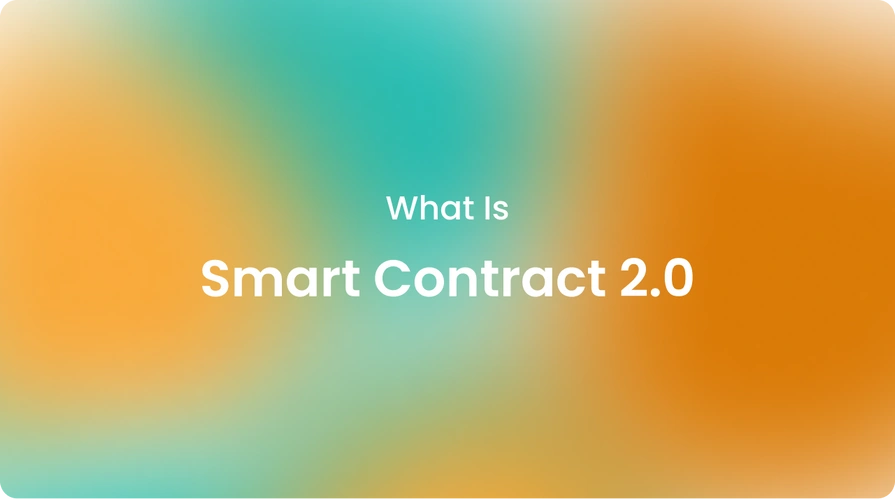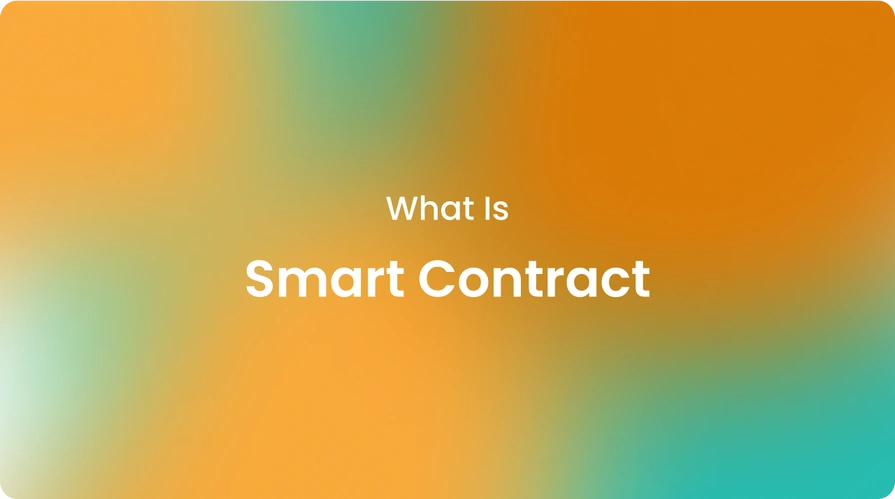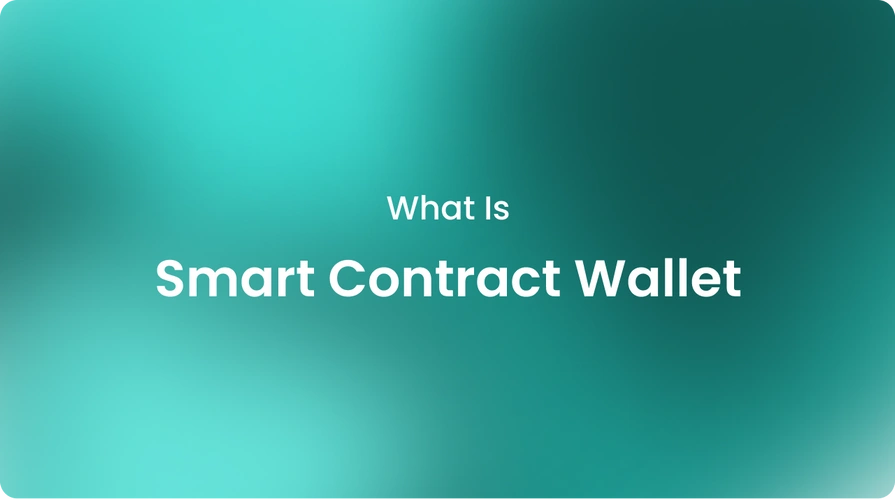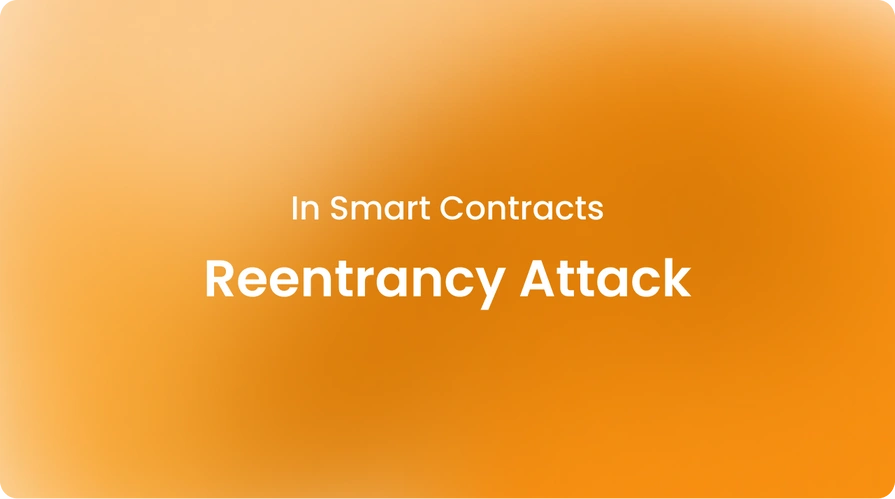|technology, knowledgehub
What Is Smart Contract 2.0?

Smart contracts first revolutionized the blockchain space by bringing programmability and automation to distributed ledgers. However, as the technology matured, the limitations of the original concept of smart contracts became clear with smart contract 2.0.
Smart Contracts 2.0 is an evolved model that enhances functionality by incorporating new innovations. In this article, we will explore the basics of smart contracts, their role in blockchain networks, and examine how the 2.0 model addresses shortcomings.
By the end, you will have a clear understanding of what Smart Contracts 2.0 offers and where this powerful technology can take us. But first, let’s start by understanding the concept of smart contracts!
What is a smart contract?
A smart contract is computer code deployed on the blockchain that automatically executes certain actions based on predefined conditions. With traditional paper contracts, an intermediary is needed to enforce the terms. Smart contracts remove this requirement by self-executing digitally.
For example, a smart contract could transfer cryptocurrency from A to B on a specified date, provide insurance payouts if conditions are met, or handle supply chain transactions.
The code and agreements are embedded in the blockchain itself for all parties to inspect, removing the need to trust a central authority with decentralization.
What is an example of a smart contract?
Some real-world examples of smart contracts include:
- Insurance policies. Payments can be automatically processed and sent to a policyholder based on pre-defined terms, like a health policy paying out on hospitalization.
- Voting systems. Votes can be cast anonymously on the blockchain and tallied automatically according to built-in voting rules.
- Rental agreements. Security deposits or monthly rent payments could be held in escrow and released to landlords or tenants based on contract fulfillment.
- Supply chain management. Smart contracts can automatically execute payments between suppliers and manufacturers once orders are confirmed as received or products ship.
A basic use of smart contracts may involve the transfer of crypto or fiat currencies from a buyer to a seller once delivery of goods or services is verified through information provided by oracles. Smart contracts allow trustless transactions through self-executing code.
Is there a smart contract on the blockchain?
Yes, all major blockchain networks support the functionality of smart contracts. On Ethereum, which is the most widely used platform for complex smart contracts, they are written in languages like Solidity and run on the Ethereum Virtual Machine.
When code conditions are met, Ethereum efficiently executes the programmed actions and records the result directly on the shared blockchain ledger. This allows for completely transparent, immutable, and trustless implementation of agreements thanks to the decentralized network.
How does blockchain 2.0 support the concept of a smart contract?
The first generation of blockchain technology, known as Blockchain 1.0, was focused mainly on cryptocurrencies like Bitcoin. However, as the technology evolved, newer applications beyond currency began emerging; this is known as Blockchain 2.0.
Several upgrades introduced as part of blockchain 2.0 directly support and enhance the capabilities of smart contracts. For example, Ethereum, a Blockchain 2.0 platform, introduced a Turing-complete programming language (Solidity) specialized for writing smart contracts.
Platforms also incorporated virtual machines like the Ethereum Virtual Machine (EVM) to execute increasingly complex smart contract code. Blockchain 2.0 brought improvements like higher transaction throughput, better speed, enhanced security models, and more programming options.
Newer protocols also emphasize interoperability, which allows smart contracts to interact with outside data sources. Standards like the ERC20 token allow for the creation of custom blockchain tokens with their own smart contracts.
All of these factors work together to make blockchains more suitable as foundations for large-scale smart contract deployment and real-world use cases. Blockchain 2.0 took smart contracts from theoretical to practical.
Why does blockchain need smart contracts 2.0?
While revolutionary, the original model of smart contracts had limitations. Transactions were slow on Ethereum due to network congestion. Code quality was also a concern since flaws could lead to millions in losses.
Smart contracts 2.0 address these issues through performance optimizations, enhanced security features, and flexible programmability.
New language constructs allow integrating off-chain oracles and AI for more sophisticated decision trees too. Smart contracts 2.0 pave the way for wider blockchain adoption by enterprises.
Where can I use smart contracts 2.0?
As the technology matures, potential use cases for smart contracts continue to expand across many industries.
- DeFi. Decentralized finance uses smart contracts for applications like crypto lending, exchanges, asset management, and more.
- Supply chain. Contracts can track items and automatically handle payments based on delivery confirmation through integration with IoT sensors.
- Voting. Governance applications let organizations securely conduct polls and tally votes through on-chain governance.
- Insurance. Smart policies allow for instant damage assessments and claim processing through integration with IoT data.
- Real estate. Securing property titles, collecting rent, and managing escrow accounts through tokenized assets.
- Gig economy. Freelance marketplaces manage payments, subscriptions, and other contracts for creators and consumers.
Smart Contracts 2.0 can revolutionize how agreements are formed and transactions handled across almost every sector through the disintermediation, security, and automation afforded by decentralized technologies. The future possibilities are immense.
What is the future of smart contracts 2.0?
As blockchains and accompanying smart contract standards evolve further, several trends are expected to drive ongoing advances:
- Increased scalability through techniques like sharding, plasma, and state channels will push throughput to industry levels.
- "Smart contract as a service" platforms providing easier tools and frameworks will accelerate development.
- Integrations with AI and IoT will create self-learning, self-executing contracts capable of advanced decision-making.
- Interoperability specs will allow contracts to seamlessly pass messages and values between separate blockchains.
- Zero-knowledge proofs and homomorphic encryption will unlock new models for secure, private data computation.
- DAOs and autonomous organizations with their own capital and governance will emerge to self-regulate.
As their management of digital agreements and assets becomes more seamless, reliable, and interwoven with other technologies, smart contracts will essentially become invisible infrastructure supporting wide-ranging applications across the digital economy.
Their evolution will be pivotal in realizing the full vision of decentralized networks powering everything from automated marketplaces to new monetary systems.
The future of decentralized collaboration is bright, with advancements by players like Cryptobunq that offer secure solutions for mainstream adoption across industries.
Cryptobunq is a crypto service provider with robust security. Individuals and businesses can benefit from CBQ solutions tailored to their project needs. From the crypto exchange API to crypto checkout and invoicing, batch crypto payments to custody and wallet, there are many services CBQ offers.
The bottom line
Smart contracts were a revolutionary first step, but significant work is still needed to address current limitations and fully realize their world-shaping potential.
The development of Smart Contracts 2.0 standards serves to fulfill this vision by resolving issues around scalability, security, and flexibility through the integration of the latest technical advancements.
Platforms and networks supporting Smart Contracts 2.0 are eliminating barriers to help smart contracts finally break into widespread commercial use. Therefore, the future of smart contracts with the development of decentralization is bright.
You can adapt smart contracts to your business with secure crypto payments. Cryptobunq is a one-stop-shop crypto service provider partner for all your crypto and blockchain needs. Explore CBQ case studies and contact us today to start benefiting from our expert solutions!













